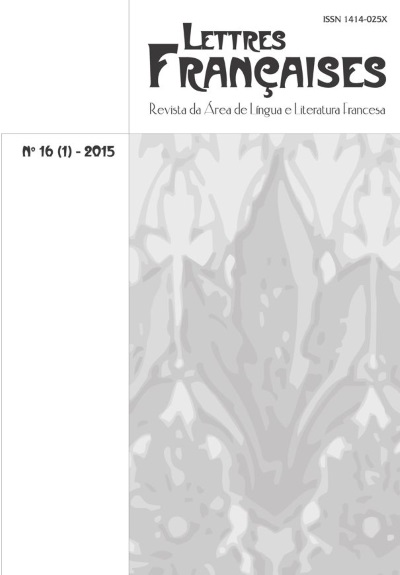Diderot e o contexto do romance no século XVIII
Palavras-chave:
Romance, Forma Romanesca, História do romance, Jacques le fataliste,Resumo
Este trabalho pretende fazer uma análise do romance Jacques le fataliste et son maître (1778), do escritor e filósofo francês Denis Diderot (1713-1784), no sentido de demonstrar como essa obra dá, na própria estrutura da narrativa, uma resposta original e legítima às questões que se colocavam ao gênero no século XVIII: afinal, o que é o romance? Como fazer para buscar a verossimilhança dentro da narrativa? A que se presta um romance? Qual a sua finalidade e quais devem ser as características principais que o distinguem da poesia, do drama e da História? Trata-se, portanto, de demonstrar a importância de Jacques le fataliste para a evolução do próprio gênero ao colocar em evidência procedimentos e temas literários inovadores, transformando o falso - a ficção – em uma forma de declarar a verdade e de discutir os problemas históricos de seu tempo. Ao ler o romance e refletir sobre sua forma, nota-se que o romance é inovador, na França do século XVIII, em todos os sentidos, já que a obra questiona os limites do gênero por meio da composição da narrativa.
Downloads
Publicado
Edição
Seção
Licença
Os manuscritos aceitos e publicados são de propriedade da Revista Lettres Françaises. É vedada a submissão integral ou parcial do manuscrito a qualquer outro periódico. A responsabilidade do conteúdo dos artigos é exclusiva dos autores. É vedada a tradução para outro idioma sem a autorização escrita do Editor ouvida a Comissão Editorial.

